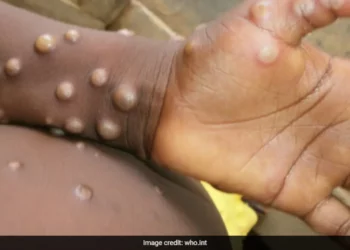By Ebi Kesiena
The United Nations Children’s Fund (UNICEF) is urgently seeking $16.5 million to enhance its response to the escalating mpox outbreak in East and Southern Africa. The appeal comes as the region faces a growing threat, with confirmed cases reported in Burundi, Rwanda, Uganda, Kenya, and South Africa.
UNICEF’s Regional Director for Eastern and Southern Africa, Etleva Kadilli, highlighted the vulnerability of children and communities in the region, warning that they are on the brink of a significant outbreak. In Burundi alone, over 500 cases have been confirmed across 25 of the country’s 49 districts, according to the Africa Centers for Disease Control and Prevention (Africa CDC).
The situation is particularly concerning for younger populations. UNICEF reports that nearly 60% of detected cases involve children and adolescents under 20 years of age, with children under 5 years old making up 21% of the cases.
Kadilli emphasized the need for immediate, life-saving interventions, alongside efforts to improve risk communication, enhance cross-border collaboration, and invest in overall health system strengthening. She stressed that ensuring the continuity of essential services and focusing on programs that support child well-being must be prioritized.
UNICEF also raised alarms about a new variant of the mpox virus (clade Ib) found in all affected countries except South Africa. This variant poses a heightened risk of wider transmission, particularly among young children.
Additionally, the organization expressed concern over the secondary impacts of the mpox outbreaks on children and adolescents, including the potential for stigma, discrimination, and disruptions to education.
The Democratic Republic of Congo remains the hardest-hit country, with nearly 18,000 cases recorded since the start of 2024, according to Africa CDC data.



































